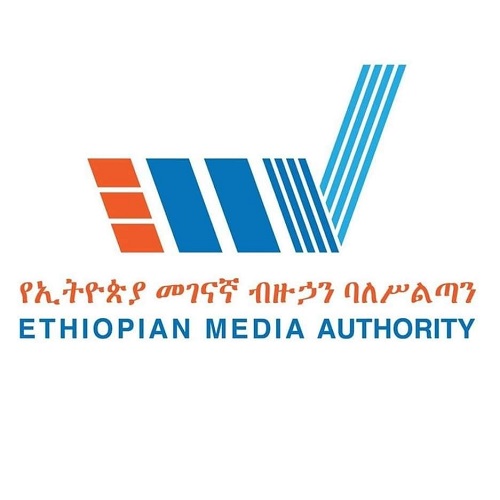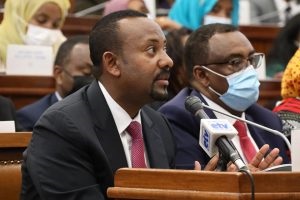
The Legal, Justice, and Democracy Affairs Standing Committee of the House of Peoples’ Representatives of the Federal Democratic Republic of Ethiopia a week before evaluated the nine months performance report of the Ethiopian Media Authority (EMA) and held half-day discussions with the top officials of the Authority on the report.
Ethiopian Media Authority (formerly Ethiopian Broadcast Authority) has recently been reorganized as a body working towards creating enabling environment to fully enforce the rights of freedom of expression and of the media which is guaranteed under the Constitution of the Federal Democratic Republic of Ethiopia (FDRE), as well as international human rights instruments which are binding on Ethiopia. Besides, it aims at regulating broadcasting media to ensure they are operating in accordance with the law and provide them with proper support thereby strengthening media self-regulation.
The Authority is also mandated for issuing broadcasting license, ensuring diversity and plurality in the utilization, ownership, production or distribution of broadcasting services, facilitating a regular discussion forum for stakeholder consultation as well as establishing and strengthening a good working relationship between the media and the government.
As stated in the revised Media Proclamation, the Ethiopian Media Authority (EMA) has power and duties of issuing, amending, suspending and canceling broadcasting license and determining the licensing condition of broadcasting services. It has also been mandated in preparing a directive that sets the criteria to determine the competency and technical standards of broadcasting services and get it approved by the concerned body and issue certificates of competency and technical competency based on the directive; and giving legal recognition to a periodical or news service activity or an online media the dissemination of which covers more than one regional state by issuing certificate of registration.
The Authority is also mandated to collect periodical and online media registration, allow broadcasting license and license renewal fees in accordance with the rate approved by the Government; regulate broadcasting media to ensure that they are operating in accordance with the Constitution, this Proclamation, other pertinent laws and regulations and directives issued hereunder. It is also authorized to regulate advertisement as per the advertisement law; examine and provide decisions on grievances lodged by licensees or service providers against broadcasting services as well as on disagreements that arise among the licensees.
The proclamation also stipulates that the Authority has the responsibility to conduct researches that contribute to the development and improvement of the media services; compile and archive data related to the sector; formulate laws and policy issues in consultation with relevant stakeholders and submit for Government approval; establish and strengthen a good working relationship between the media and the government including facilitating a regular discussion forum for stakeholder consultation; perform consent based capacity building activities including technical and financial support to enhance the capacity of the media; and work in collaboration with civil society, education, research and think-tank institutions working in these areas; and organize training center which enables building the capacity of the media.
The Authority does have a number of duties and powers. To mention but a few, it is authorized for providing the media with proper support to strengthen the organizational structure and operation of self-regulation, providing necessary support, upon request, to reporters or news agents coming from foreign countries to Ethiopia or resident foreign media correspondents to ensure that their freedom of movement is respected.
It is also in charge of conducting registration after ensuring that all the necessary documents are presented; in cooperation with the Agency for Civil Society Organizations, regulating the organization, finance and operation of civil society organizations that provide a special public broadcasting service, promoting and facilitating the development of a diverse range of broadcasting services in Ethiopia in line with the public interest; and facilitating and encourage the development of domestic content in media programs.
According to the nine months performance report of the Authority, among the works of the Authority that have been done in the past nine months, the most notables are approval and implementation of the new Media Proclamation, the establishment of the Authority’s next 10-year master plan, the identification of problems of the sector by organizing public and stakeholders’ forums, the signing of a memorandum of understanding (MoU) with certain stakeholders, and the allocation of free airtime and newspaper columns for the election of political parties
Over the past nine months, complaints on the media program and advertisements have been resolved; and also the monitoring of foreign media programs about our country has been conducted, it was also reported.
In general, most of the media institutions followed the principles and ethics of the profession and thus played an important role in providing up-to-date and national information to the public, the report revealed, adding that problems of balance, inability to use and mention the right source, inability to use conflict-reporting approaches during crisis, lack of impartiality in program preparation and presentation, promoting one’s own agenda instead of providing appropriate information to the general public, lack of sufficient participation of pertinent bodies, and lack of quality and occurrence of interruptions during transmission are some of the gaps that the Authority has noticed during its monitoring.
As stated in the report, delays in the formulation of the communication strategy, lack of research as required, lack of monitoring and support for team work, and the limited budget utilization are some of the weaknesses of the Authority. During the discussion, members of House’s Legal, Justice, and Democracy Affairs Standing Committee suggested ideas that need to be addressed by the Authority in the future.
Director-General of the Ethiopian Media Authority Mohammed Indris said that the ideas raised by the council are very constructive and serve as input. As to him, the next major work of the Authority will be making the Authority more efficient to discharge its constitutional mandates properly. “We need to stop the media sector from being monopolized by individuals with great deal of money,” he said, adding that in order to prevent the spread of fake information, government officials need to provide accurate information about their activities.
He also insisted that media institutions should also prioritize national peace and national interest over personal interests. Given the current situation in our country, media institutions have to do a lot of work in terms of awakening Ethiopians living at home and abroad and informing the international community of the truth, he urged.
He further stated that public media institutions should set an example for others by respecting law and order of the country. Officials of the Authority also reiterated during the discussion that major issues that need attention in the next quarter are rebranding the Authority’s service and the new designation, preparing implementation guideline for the amended media proclamation, correcting illegalities by strengthening monitoring of media programs and advertisements, as well as internet media regulation activities, strengthening forums of public and stakeholders, building performance, completing draft studies, among others.
BY ABDUREZAK MOHAMMED
The Ethiopian Herald May 23/2021


